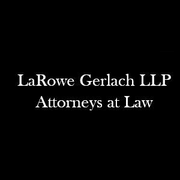
When you are far behind on bills and do not know how you are going to catch up, filing Chapter 7 bankruptcy might help to reset your finances. Taking this action would relieve a tremendous burden you have been living under and help you to start fresh within your available income range. However, as you undoubtedly have questions about this process, use this guide to get started.
A Beginner’s Guide to Chapter 7 Bankruptcy
What is Chapter 7 bankruptcy?
There are several types of bankruptcy processes for businesses and individuals. In this case, the debtor’s non-exempt assets are liquidated to pay creditors, first unsecured debt followed by secured, then non-priority unsecured. Once all proceeds are exhausted, any remaining debt is discharged.
Who is eligible to file Chapter 7 bankruptcy?
 Anyone who has not had a Chapter 7 bankruptcy discharged in the last eight years is potentially eligible. However, they must also pass a means test, which will consider income, expenses, and family size to determine if there is enough disposable income to repay debts.
Anyone who has not had a Chapter 7 bankruptcy discharged in the last eight years is potentially eligible. However, they must also pass a means test, which will consider income, expenses, and family size to determine if there is enough disposable income to repay debts.
In most instances, debtors must also complete credit counseling within six months of filing and several forms, including a petition to the court.
What happens after filing?
After filing a petition to the court, an automatic stay is put into effect that prevents creditors from collecting on debt and halts or prevents income garnishment.
An unbiased trustee is also appointed at this time to review assets, determine which ones can be liquidated, and schedule meetings with creditors. The trustee will then oversee the liquidation of all non-exempt property.
Which debts can be discharged?
Besides the exempt debt—property necessary to maintain basic standards of living, like primary home and car—most debts are discharged following a Chapter 7 bankruptcy and release the debtor from any personal liability for future payments.
However, certain government debts —specifically income taxes and student loans—are not allowable for debt release. Alimony, child support, and personal injury lawsuit debts are also not eligible to be discharged.
If you are considering filing for bankruptcy, contact the law office of LaRowe Gerlach Taggart LLP in Reedsburg, WI, for a sound financial solution. These local attorneys have over 150 years of combined experience in many areas of the law, including business and estate planning. They will work with you every step of the way, including filing paperwork and negotiating contracts, to ensure you reach the best outcome. Visit their website to learn more about their services and call them today at (608) 524-8231 to set up a free 15-minute phone assessment.
About the Business
Have a question? Ask the experts!
Send your question

